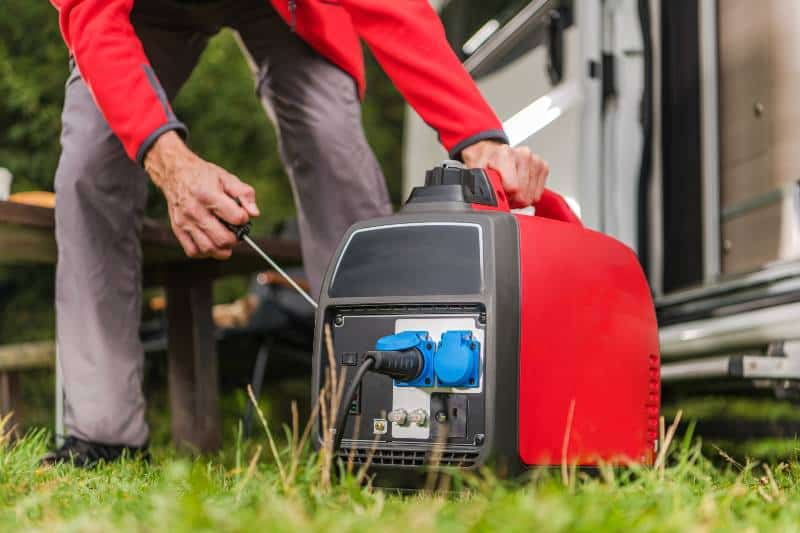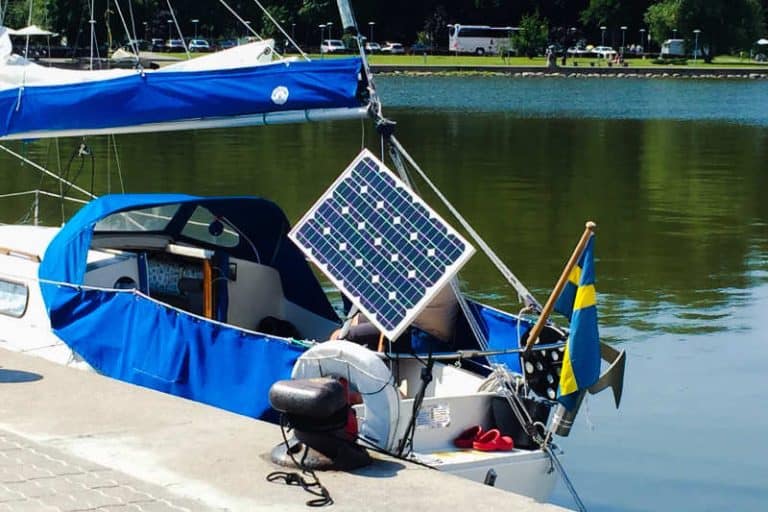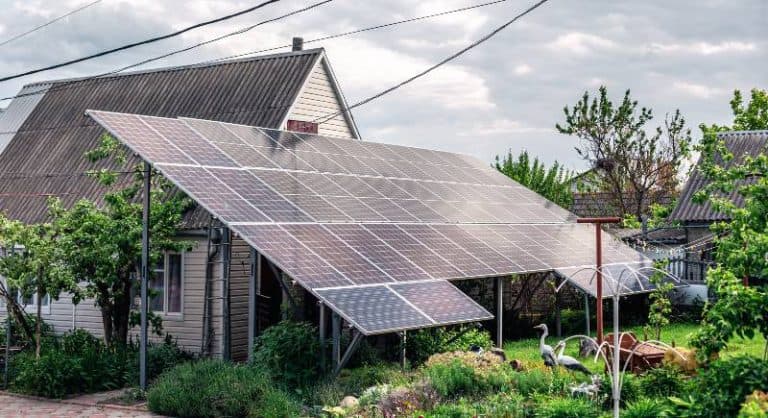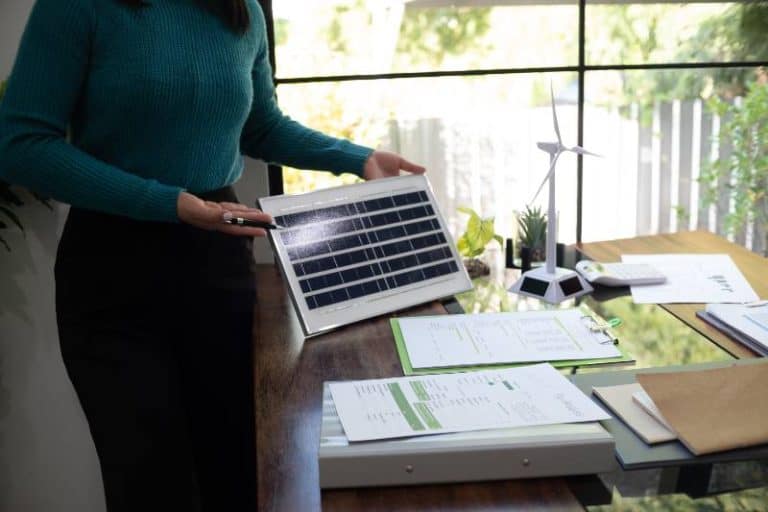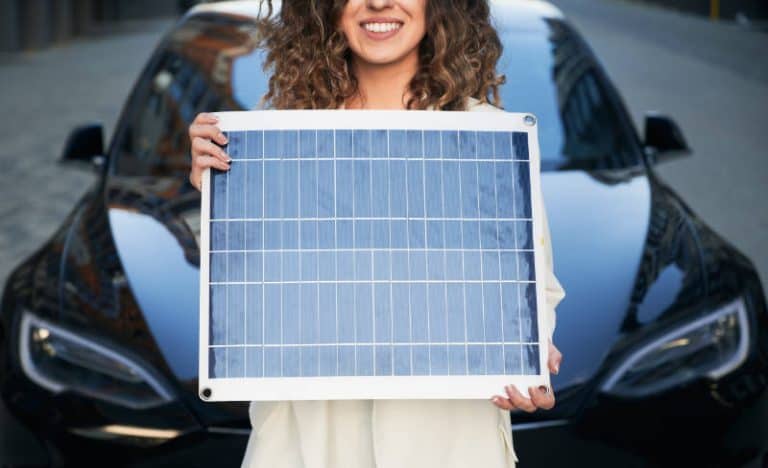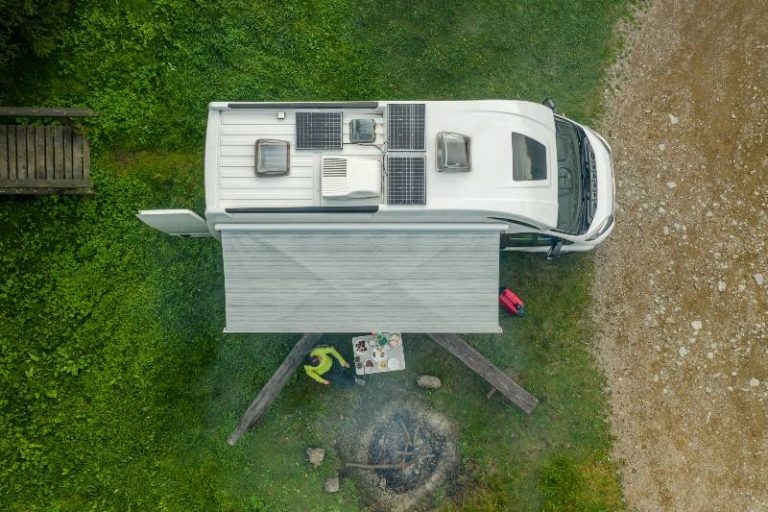Conventional vs Inverter Generators: Know Your Power
Are you looking for reliable power sources for your outdoor needs? If so, you have likely been weighing the differences between conventional and inverter generators. Both options provide the ability to generate electricity, but there are stark contrasts in terms of size, portability, cost, noise levels and overall usage that can make a difference in your decision. Keep reading to learn more about the differences between conventional and inverter generators so you can make an informed choice when it comes time to shop around.
Conventional generators produce raw power, often louder and less efficient. Inverter generators, on the other hand, deliver cleaner power suitable for sensitive electronics, are more fuel-efficient, and operate more quietly. The choice between them depends on power needs, budget, and intended use.
Key Takeaways
- Inverter generators are generally more fuel-efficient, quieter, and produce cleaner power suitable for sensitive electronics compared to conventional generators.
- Conventional generators are often more powerful and might be more cost-effective for larger power needs, but they can be noisier and less portable.
- The choice between the two largely depends on the specific needs of the user, such as power requirements, budget, and intended use (e.g., camping, home backup, construction).
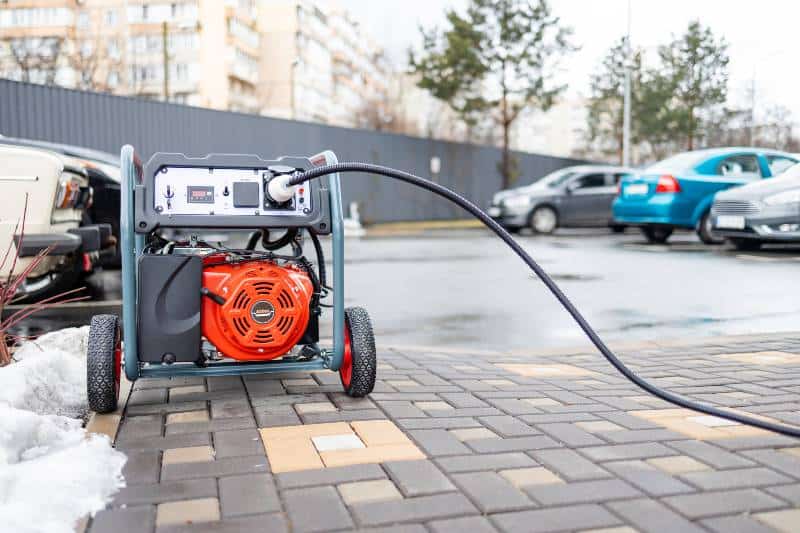
The History and Development of Generators: Journey to Inverter Technology
The Evolution of Generators
The genesis of power generation can be traced back to the late 19th century with the invention of the electric generator by people like Faraday, Tesla, and Edison. At its nascence, generator technology was a paradigm-altering invention, bridging the yawning gap between human potential and mechanization.
First, let’s hop onto the time machine and travel back to 1831 when Michael Faraday, a British scientist, invented the ‘electromagnetic generator’. The seed that was sown more than a century ago by Faraday sprouted into large Dynamo machines which could produce reliable and continuous power supply. Faraday’s ingenious invention sparked the evolution of generators, birthing new possibilities and capacities in power generation.
Towards the late 19th century, the evolution of generators benefitted from a healthy rivalry between two giants: Nikola Tesla and Thomas Edison. Their compendium of contributions become the basis for modern electric power generation. While Edison kicked off with the invention of his DC (Direct Current) system, it was the introduction of Tesla’s AC (Alternating Current) system that truly marked a breakthrough in the development of generators.
Until the 20th century, most generators were large and relied on traditional fossil fuels to function. They were inefficient, noisy, and ecologically unfriendly. This all started to change with the advent of portable generators during World War II, which represented a significant stride in making power more accessible to the public.
Introduction and Impact of Inverter Technology
The advent of the 21st century marked a turning point in the history of power generation through the emergence of inverter technology. Inverter generators were introduced, and they revolutionized the entire concept of portable power generation.
The inverter technology was a dazzling tool designed to process power in a way that was efficient, clean and compact. Unlike traditional generators which produced AC power directly, inverter generators employed a three-step process to produce electricity.
No longer would generators be big and bulky. They could now be compact and lightweight enough to carry to any location. Plus, they were no longer as voraciously thirsty for fuel. Their efficiency ensured less noise production which greatly elevated the user experience, bringing an end to noise-polluting traditional generators.
The inverter generation technology also demonstrated significant advancement in power quality. This technology could ‘clean’ the electricity, producing a stable and consistent electrical sine wave. This ensured the safety of sensitive electronic devices like laptops and mobile phones, thus opening up new domains of application for portable power use.
The journey from Faraday’s electromagnetic generator to the development of inverter technology is an enduring testament to the power of human curiosity and invention. The development of the generator and subsequent introduction of inverter technology has not only changed how we utilise electricity but it has also made power generation more accessible, portable, and safe for the environment. We can’t help but get excited at the prospect of what the future holds for this field, as it continues to evolve and impact our lives from behind the scenes.
Conventional Generators
How Conventional Generators Work
A conventional generator, also widely known as a traditional generator, operates on the principle of electromagnetic induction as discovered by Michael Faraday in 1831. The heart of the generator consists of a fuel-powered engine, coupled to an alternator, that generates AC (Alternating Current) electricity.
The operation commences when the engine of the generator begins to burn the fuel (such as gasoline, diesel or propane) to produce mechanical energy. This energy is converted into electrical energy as the alternator (which comprises a rotating magnetic field and stationary copper coils) set in motion by the engine’s power, forces the electrons to move through the coils, producing the alternating current.
Pros and Cons of Conventional Generators
Advantages:
- High Power Output: Conventional generators can offer a higher power output, enabling them to power larger equipment or entire homes and facilities.
- Fuel Efficiency at Full Load: They are fuel-efficient when running at full capacity, making them ideal for situations where a substantial power supply is required for extended periods.
Disadvantages:
- Noise Level: Conventional generators tend to be noisier due to the constant speed of the engine necessary for producing AC electricity.
- Size and Portability: Traditional generators are larger and often not as portable as their inverter counterparts, demanding a semi-permanent spot within a home, RV, or job site.
- Uneven Power Quality: Earlier models of conventional generators may have fluctuations in power output. This variability might damage sensitive electronic devices.
Best Use Cases for Conventional Generators
Given their characteristic attributes, conventional generators excel in circumstances necessitating high power output. Here are some illustrative examples:
- Power Outages: Conventional generators can serve as backup power sources for entire homes in blackout situations, enabling to keep critical appliances such as refrigerators, heating/cooling systems and lighting running.
- Construction Sites: Due to their higher power output and less need for mobility, they serve as adept power sources for running heavy-duty equipment in construction and mining sites.
- Events: Traditional generators can provide the much-needed power boost for large events such as concerts, fairs or weddings.
- RVs: If the power demand isn’t fluctuating and noise isn’t a critical issue, traditional generators can be used effectively to power air conditioners and other large electrical devices in recreational vehicles (RVs).
While conventional generators may seem less sophisticated compared to inverter generators, they prove to be mighty and indispensible workhorses in many high-power demanding scenarios. Their utility and functionality remain appreciated even in the face of evolving generator technology.
Unlock the potential of off-grid power solutions with our comprehensive article, ‘Overcoming Blackouts: The Power of Portable Solar Generators.’ This informative piece sheds light on the versatility of portable solar generators as a dependable alternative during blackouts. Equip yourself with valuable knowledge derived from this essential read and stay prepared for any power outage that may come your way!
Inverter Generators
How Inverter Generators Work
Inverter generators not only exhibit an innovative approach to power generation but also showcase modern advancements in efficiency and portability. Their working mechanism is quite different from that of conventional generators, as they employ a three-step process to produce alternating current (AC) electricity.
- Generating AC Electricity: Similar to conventional generators, inverter generators also consist of an engine that burns fuel to generate mechanical energy. This energy drives an alternator to produce AC electricity.
- Converting to DC Electricity: Next, the AC produced is converted into direct current (DC) electricity. This conversion is made possible thanks to the inverter module present within the generator.
- Inverting back to AC Electricity: Lastly, the inverter module converts the DC electricity back to AC, producing a clean, stable, and consistent electrical sine wave. This significantly reduces any fluctuations or distortion in the output, ensuring compatibility with sensitive electronic devices.
Pros and Cons of Inverter Generators
Advantages:
- Clean Power Generation: Inverter generators deliver a high-quality AC output, thanks to their technology that filters voltage fluctuations. This high-quality power is ideal for running sensitive electronic equipment like laptops, smartphones, and medical equipment.
- Fuel Efficiency: Typically, inverter generators dynamically adjust the engine’s speed according to the load, resulting in reduced fuel consumption and extended run time.
- Noise Reduction: Inverter generators are relatively quieter, thanks to their smart throttling and smaller engines. This reduced noise level provides a comfortable user experience in a variety of environments.
- Compact and Lightweight: One of the signature traits of inverter generators is their portability, which makes them a perfect companion for outdoor activities requiring a power source.
Disadvantages:
- Higher Cost: Inverter generators tend to be more expensive upfront due to their cutting-edge technology and advanced components.
- Limited Power Output: They usually have lower power output capacities as compared to conventional generators, limiting their use to situations where less power is required.
Best Use Cases for Inverter Generators
The unique features of inverter generators make them an ideal choice for various specialized scenarios that demand high-quality power, quiet operation, and portability. Here are some fitting examples:
- Camping and Outdoors: Their lightweight design and quiet operation make inverter generators the perfect companion for camping trips, tailgating events, and other outdoor recreational activities that need portable power.
- Sensitive Electronics: Inverter generators excel at powering sensitive electronic devices like laptops, smartphones, and medical equipment, thanks to their clean power output.
- Small Events: In events such as backyard barbecues or small gatherings, inverter generators provide reliable power without disruptive noise that might spoil an enjoyable atmosphere.
- Mobile Offices and Workshops: For people working in mobile offices or remote workshops, an inverter generator can provide a steady and quiet power source to run essential electronics and equipment.
In essence, inverter generators are synonymous with innovation and user-friendliness in the realm of portable power generation. Their compact size, quiet operation, and high-quality power output make them the go-to choice for a growing number of power needs in our modern, technology-driven world.
Comparative Analysis
When it comes to selecting a generator that will best meet your needs, it’s important to dive deep and draw comparisons along different parameters such as fuel efficiency, noise levels, portability, price, and power output and quality. Without further ado, let’s head directly into this fascinating generator showdown!
Fuel Efficiency
On the fuel efficiency front, inverter generators generally have the upper hand. They are designed with advanced technology that allows them to dynamically adjust the engine speed according to the load. This is in sheer contrast to conventional generators that typically run at a constant speed regardless of the load, consuming more fuel in the process. Thus, inverter generators are the clear winners in terms of fuel conservation and extended run-time.
Noise Levels
Noise levels can largely influence the user experience, and on this score, inverter generators prevail again. They are often engineered with noise-reducing features including smart throttling and quieter engines, earning them an almost stealth-like status among generators. Conventional generators, on the other hand, running at a constant speed, tend to be notably louder. Looking forward to a cozy camping night or a peaceful backyard gathering? I bet you’d prefer the hush of an inverter generator.
Portability
The ease of moving a generator around greatly influences its utility. Inverter generators, known for their compact and lightweight design, easily outshine conventional generators that are generally larger and heavier. Whether you’re preparing for an adventurous camping trip, or setting up a picnic in the park, you’ll appreciate the ease with which an inverter generator can be loaded into your vehicle and setup at your destination. The sense of freedom and flexibility coming out of it is simply unmatchable!
Price
When the conversation veers towards pricing, conventional generators seize the victory lap. Given their relatively less sophisticated design and technology, the upfront cost for conventional generators tends to be lower. Inverter generators, packed with advanced technology and specialty features, command a higher price. However, it’s always wise to consider the long-term costs. The additional upfront cost of an inverter generator could potentially pay for itself over time through fuel savings, especially if you anticipate frequent or long-term use.
Power Output and Quality
Lastly, let’s consider power output and quality. Conventional generators typically have a winning edge for power output, able to deliver higher wattages necessary to power up heavy-duty machinery or an entire house during a blackout. However, when it comes to power quality, inverter generators outshine their conventional counterparts. The electricity produced by inverter generators is steady and consistent, devoid of voltage fluctuations, making it suitable for powering sensitive electronics without any fear of damage.
In a nutshell, the choice between conventional and inverter generators is far from being black and white; it’s interspersed with various shades of grey driven by particular needs and circumstances. Both have areas where they shine and both have certain compromises. Your winning choice will depend on a cost-benefit analysis tailored to your specific needs. Whether it is the humble power mogul – the conventional generator – or the innovative quiet achiever – the inverter generator, that becomes your go-to buddy, will depend on your specific requirements dictating the choice.
Environmental Impact
In a world increasingly concerned about environmental sustainability, it is crucial to consider the environmental footprint of generators too. Let’s review the environmental impact of conventional and inverter generators in terms of emissions, eco-friendliness, and fuel consumption.
Emissions and Eco-Friendliness
Generators, irrespective of their type, emit carbon dioxide (CO2), a notorious greenhouse gas that contributes to global warming, during the fuel-burning process. However, the extent varies based on their efficiency and technology.
Generally, inverter generators, equipped with advanced engines and electronic throttle control, tend to be more eco-friendly. Their engines adjust speed to match the load, unlike conventional generators, which typically run at a constant speed. This tailored operation ensures that inverter generators burn only the amount of fuel necessary, which leads to fewer emissions.
Conventional generators, on the other hand, despite their robustness and high power output, unfortunately, lag in this regard. They tend to emit a relatively larger amount of CO2 due to their constant speed operation, regardless of the load.
Fuel Consumption
Fuel consumption directly correlates with the generator’s environmental impact, as burning more fuel results in more emissions. As mentioned earlier, inverter generators trump in this aspect, given their ability to match engine speed with power demand, which significantly improves fuel efficiency. In other words, inverter generators ensure that not a single drop of fuel is wasted, leading to reduced carbon emissions and a smaller environmental footprint.
In contrast, the fuel efficiency of conventional generators typically drops when they’re running at lower loads. Consumption remains high, as these units are designed to run at a constant speed, producing full power, even when the power demand is much lower. Consequently, they tend to consume more fuel and produce higher emissions over the same usage duration when compared to inverter generators.
While both generator types emit greenhouse gases, inverter generators, with their advanced technology and efficiency, tend to have a smaller environmental footprint. However, it’s important to mention that proper generator maintenance, correct fuel storage, and efficient usage can minimize both generator types’ environmental impact. After all, every bit counts when we strive to care for our only home, Earth!
Safety and Maintenance
Safe operation and routine maintenance are fundamental to extending a generator’s lifespan, ensuring its reliability, and keeping it running smoothly over the years. Here’s what you need to know about safety precautions and maintenance routines for both conventional and inverter generators.
Safety Precautions
Conventional Generators:
- Setup and Operate Outside: Always setup and operate your generator outdoors to prevent carbon monoxide build-up.
- Cool Down Before Refueling: Allow the generator to cool down before refueling to prevent any accidents due to spillage on heated parts.
- Ground Your Generator: Properly ground your generator to avoid electrical shocks.
- Avoid Overloading: Consciously manage load to prevent overloading, as it can damage both the generator and the connected devices.
- Keep Away from Water: Maintain the generator dry to minimize risk of electric shocks.
Inverter Generators:
- Operate in a Ventilated Area: Although inverter generators emit less carbon monoxide, it’s still advisable to operate them in well-ventilated areas.
- Don’t Overload: Overloading an inverter generator can harm sensitive electronics connected to it. Pay attention to the generator’s maximum load capacity.
- Proper Fuel Storage: Ensure the fuel is stored properly—away from living areas, in approved containers, and in a well-ventilated location.
Maintenance Routines
Maintenance routines are similar for both conventional and inverter generators. Here are some key steps:
- Regular Oil Changes: Replace the oil every 100 hours of operation, or as recommended by the manufacturer.
- Inspect and Clean Air Filters: Keep the air filters clean, inspecting them regularly and replacing when they become too dirty or worn out.
- Check Fuel System: Regularly inspect your fuel system for any leaks, corrosion, or damage. Always use fresh fuel and don’t forget to add a fuel stabilizer if storing for extended periods.
- Inspect Spark Plugs: Check your spark plugs regularly for wear and replace as necessary.
- Battery Maintenance: If your generator has a battery, ensure it’s kept clean and checked regularly, especially before long-term storage.
- Regular Run-Time: Running your generator periodically will help keep its parts lubricated, preventing carbon build-up and keeping the battery charged.
Following these safety guidelines and maintenance routines diligently can ensure your generator, be it a staunch conventional generator or a modern inverter generator, will reliably serve your power needs and last for years. Remember, these mechanical marvels are like trusty companions – take care of them, and they’ll take care of you when you need them most!

Conventional vs Inverter Generator FAQs
Which type of generator is more portable?
Inverter generators typically have a compact and lightweight design, making them far more portable than conventional generators. This makes them ideal for camping trips or other outdoor activities.
Are inverter generators quieter?
Yes, inverter generators usually produce much less noise due to their advanced engine technology. They came with mufflers that reduce sound emissions drastically, making them well-suited for residential or camping use.
Which type of generator should I get?
It depends on your needs. If you require portability and low noise operation, an inverter generator is an ideal choice. However, if power output is most important to you, a conventional generator might be the better option due largely to its superior wattage outputs.
Are inverter generators more expensive?
Inverter generators usually come with a higher price tag than conventional units due to their advanced technology and efficiency. However, given the many benefits they have to offer, they often prove to be worth the extra cost in the long run. Plus, they can save you money on fuel costs due to their improved fuel efficiency!
How do maintenance requirements compare for both types?
Both conventional and inverter generators require regular maintenance to keep them running properly over the long run. This includes changing the oil, inspecting and cleaning air filters, checking the fuel system for leaks or corrosion, checking spark plugs, and so on. However, due to their advanced features, inverter generators often require more thorough attention than conventional models.
Which generator type is better for sensitive electronics?
Inverter generators are better suited for sensitive electronics due to their sine wave output, which helps protect from surges and other voltage fluctuations. However, it’s still important to be conscious of the load limits of your generator and connect only the necessary devices.
Can I parallel two inverter generators for more power?
Yes, you can parallel two inverter generators for more power output. This feature is especially useful if you need a higher wattage output but don’t want the hassle of getting a larger generator. Plus, it allows for greater portability, as each unit can be easily carried to and from the jobsite separately.
Conclusion
It can be tough to decide whether a conventional portable generator or inverter generator is the best choice for your needs, and it largely depends on what you plan to use it for. Inverter generators are typically quieter and more fuel-efficient, making them great for camping trips or quiet home use. Conventional generators may offer more power and greater cost-effectiveness, but will likely be noisier. When choosing between them, consider your power requirements, budget and intended purpose carefully.
If you still need help deciding which one is right for you, reach out to us for expert advice! Don’t forget to subscribe to Electrik Living-You’ll be the first to know about the newest products designed to make your life easier. Plus, subscribing to our newsletter keeps you up-to-date with industry trends and insights into electric lifestyle topics. Thanks for reading!
